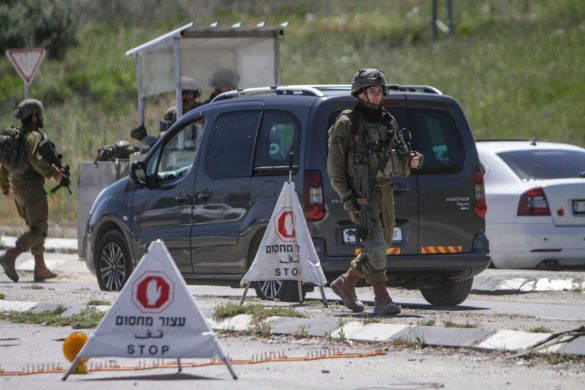Egyptens militære styre har “fejlet fuldstændigt”, når det handler om at leve op til løfterne om at beskytte menneskerettigheder, og styret har endda begået værre overtrædelser af rettighederne end landets afsatte præsident, Hosni Mubarak.
Det er konklusionen i en ny rapport fra Amnesty International, mens kampe mellem demonstranter og sikkerhedsstyrker fortsætter i landet, skriver Berlingske online tirsdag.
Mandag aften, hvor Kairos Tahrir-plads for tredje dag i træk var hærget af kampe og demonstrationer, tilbød den siddende egyptiske regering således over for landets militærråd (SCAF) at gå af, og ifølge det egyptiske sundhedsministerium er mindst 33 personer dræbt og 1.500 såret i sammenstød mellem sikkerhedsstyrker og demonstranter siden lørdag.
– Med den massive forfølgelse af civile egyptere ved militære domstole, voldelige angreb på fredelige demonstranter og en udvidelse af Mubaraks undtagelseslov har SCAF fortsat den undertrykkelse, som egypterne kæmpede så hårdt imod i januar og februar, siger Philip Luther, Amnestys direktør for Mellemøsten og Nordafrika, i en pressemeddelelse.
Allerede i august indrømmede SCAF således ifølge Amnesty, at flere end 12.000 egyptere var dømt ved militærdomstole i de ni måneder, militæret har haft magten. Til sammenligning blev omkring 2.000 dømt ved militærdomstole under hele Hosni Mubaraks tre årtier lange styre.
“Euforien efter opstanden er afløst af frygt for, at et undertrykkende styre blot er blevet afløst af et andet”, står der bl.a. i rapporten fra Amnesty.
Amnesty International skriver videre i sin pressemeddelelse:
Amnesty International found in its review of human rights under the SCAF that the military council had met few of the commitments it made in its many public statements and had worsened the situation in some areas.
Charges against defendants have included “thuggery”, “breaking the curfew”, “damaging property” and “insulting the army”.
IMPRISONED FOR WRITING
The case of prisoner of conscience Maikel Nabil Sanad, a blogger sentenced to three years in prison in April for criticizing the military and objecting to military service, has become symbolic. After going on hunger strike in August, prison authorities have denied him the medication he needs to treat a heart condition. He continues to be held in prison as his case is being reviewed by another court following an appeal in October.
In a clear attempt to suppress negative media reporting about the SCAF, scores of journalists and broadcasters have been summoned to the military prosecutor. Pressure from the military has led to a number of major current affairs shows being cancelled.
The SCAF promised in early statements to “carry out their leading role in protecting protesters regardless of their views” but security forces, including the army, have violently suppressed several protests, resulting in deaths and injuries.
BLOODSHED AND TORTURE
Twenty-eight people are believed to have been killed on 9 October after security forces dispersed a protest by Coptic Christians. Medics told Amnesty International that casualties included bullet wounds and crushed body parts, after people were run over by speeding armoured vehicles. Instead of ordering an independent investigation, the army announced that it would carry out the investigation itself and moved quickly to suppress criticism.
Prominent blogger Alaa Abd El Fatta, who witnessed the violence and criticized the fact that the army was leading on the investigation into the crackdown, continues to be detained following his questioning by military prosecutors on 30 October, in what seems to be an attempt by the SCAF to stem criticism of their bloody handling of the Maspero protests.
Amnesty International said it had seen consistent reports that the security forces were employing armed “baltagiya” or “thugs” – to attack protesters. This was a well-known tactic employed under the rule of Hosni Mubarak.
Torture in detention has continued under the SCAF and Amnesty International has interviewed detainees who said they were tortured in army custody. In September a video circulated showing army and police officers beating and giving shocks to two detainees. After apparently carrying out an investigation, the military prosecution dismissed the video as “fake”, without giving any further details.
INVESTIGATIONS STILL ON HOLD
Amnesty International said that the SCAF has used promises of investigations to deflect criticism of serious human rights violations, but has failed to deliver. No perpetrators of such abuses are known to have been brought to justice.
In a notable example, the military council announced on 28 March it would investigate the use of forced “virginity tests” by the army to intimidate 17 female protesters on 9 March, but no information about this investigation has been made public. Instead, the only woman who filed a complaint against the SCAF was said to have been subjected to harassment and intimidation.
Amnesty International also said that forced evictions (udsættelser) of Egypt’s slum residents had been carried out by military forces after they assumed law enforcement duties in early 2011, and called for an end to the practice of forced evictions.
The organization called on the Egyptian authorities – including the SCAF – to restore confidence in public institutions by properly and transparently investigating human rights violations and lifting the Emergency Law.
When Amnesty International’s Secretary General Salil Shetty met SCAF representatives in June, he had urged them to scrap the 1981 Emergency Law which unfairly restricted a number of fundamental rights.
But in September the Emergency Law was expanded to cover offences such as disturbing traffic, blocking roads, broadcasting rumours, possessing and trading in weapons, and “assault on freedom to work”. Those arrested under the emergency law are tried before special courts known as (Emergency) Supreme State Security Courts.
– The Egyptian military cannot keep using security as an excuse to keep to the same old practices that we saw under President Mubarak, said Amnesty International’s Middle East and North Africa Acting Director Philip Luther, adding:
– If there is to be an effective transition to the new Egypt that protesters have been demanding, the SCAF must release their grip on freedom of expression, association and assembly, lift the state of emergency and stop trying civilians in military courts.
Man kan downloade hele rapporten på
http://www.amnesty.org/sites/impact.amnesty.org/files/2011%20-%2011%20-%20Broken%20Promises%20%28English%29.pdf














